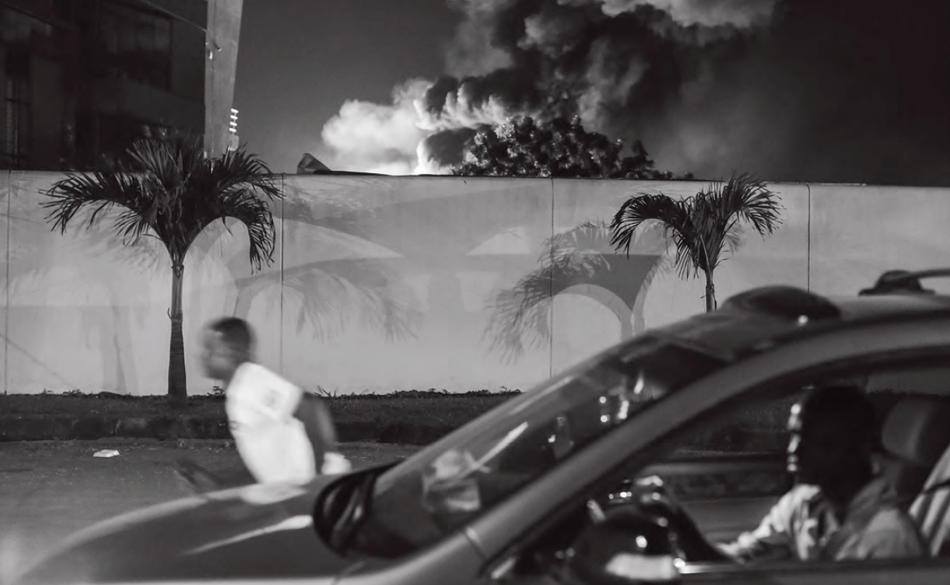“This should be a time of joy. You know?” an elderly man mumbles while waiting at the Nigerian consulate in New York. “Going home should be a thing of joy.”
Seated nearby, the nameless narrator of Teju Cole’s novella Every Day Is for the Thief is anything but joyful. Fifteen years after he left Nigeria, he is preparing to return there for the first time, to visit family and friends and to rediscover this place he knew so well as a child. But in the crowded consulate, the long wait and “unofficial” fees seem a portent of the trip to come. Our narrator is going home, but will he recognize it?
And so we follow this young man as he wanders the streets of Lagos, much as the narrator of Cole’s Open City, which won the 2012 PEN/Hemingway Award, wanders the streets of New York. Through his eyes, even the most mundane outings, such as a midday trip to the market or a bus ride around town, become an opportunity to absorb the “energies of Lagos life — creative, malevolent, ambiguous.”
He quickly finds that much of the vitality he remembered and longed for over the years has been replaced by depravity. Demands for bribes taint every encounter — “fifty naira for the man who helps you back out from a parking spot, two hundred naira for the police officer who stops you for no good reason in the dead of night” — and the city feels less and less like home. “Money, dished out in quantities fitting the context, is a social lubricant here,” he notes. “It eases passage even as it maintains hierarchies.”
It’s an epidemic of greed, and its demands are backed up by a threat of violence. Sadly, “no one else seems to worry,” as our wanderer does, “that the money demanded by someone whose finger hovers over the trigger of an AK-47 is less a tip than a ransom.” Eventually, he understands that the possibility of danger is as much a part of the culture as the muezzin’s daily calls to prayer. This harsh reality is never more apparent than when an eleven-year-old boy is caught stealing in the market. As punishment, the boy is burned alive by “necklacing,” a torturous form of execution in which a gasoline-filled tire is placed around the victim’s body and then ignited. “The fire catches with a loud gust, and the crowd gasps and inches back. The boy dances furiously but, hemmed down by the tire, quickly goes prone, and still.” For a moment, the crowd is awestruck. But terror is soon replaced by resignation, and traffic “reconstitutes around the charred pile” even as “the air smells of rubber, meat, and exhaust.”
It’s tempting to read the narrator’s daily adventures as a kind of travelogue, supplemented by Cole’s black-and-white photographs of Lagos, which lend it a poignant authenticity. But Every Day Is for the Thief is as much an exploration of self as one of place. “Other things, less visible, have changed,” the narrator reflects. “I have taken into myself some of the assumptions of life in a Western democracy — certain ideas about legality, for instance, certain expectations of due process.” His indignation at the city’s declining social order is therefore complicated by privilege. Our narrator, whom we learn is studying psychology in New York, recognizes that worrying about corruption is a luxury that many people can’t afford. In this and many other ways, he has “returned a stranger.”
There is an undeniable resemblance between Cole, the American-born writer who was raised in Nigeria, and his anonymous narrator. Cole, too, returned to Lagos after many years away and, not surprisingly, documented his travels, leaving us to wonder whether his book (originally published in Nigeria in 2007) is fact, fiction, or both. Cole ’03GSAS, who studied philosophy at Columbia, deliberately leaves us in the dark.
What the story lacks in continuity — it is at times hard to follow the short, tenuously connected chapters — it more than makes up for in rich detail.
Ultimately, Lagos is as complicated as it is captivating. As Cole’s photographs reveal, a subtle beauty exists in this place, one that encourages the narrator even during his darkest moments: “Each time I am sure that, in returning to Lagos, I have inadvertently wandered into a region of hell, something else emerges to give me hope. A reader, an orchestra, the friendship of some powerful swimmers against the tide.”



